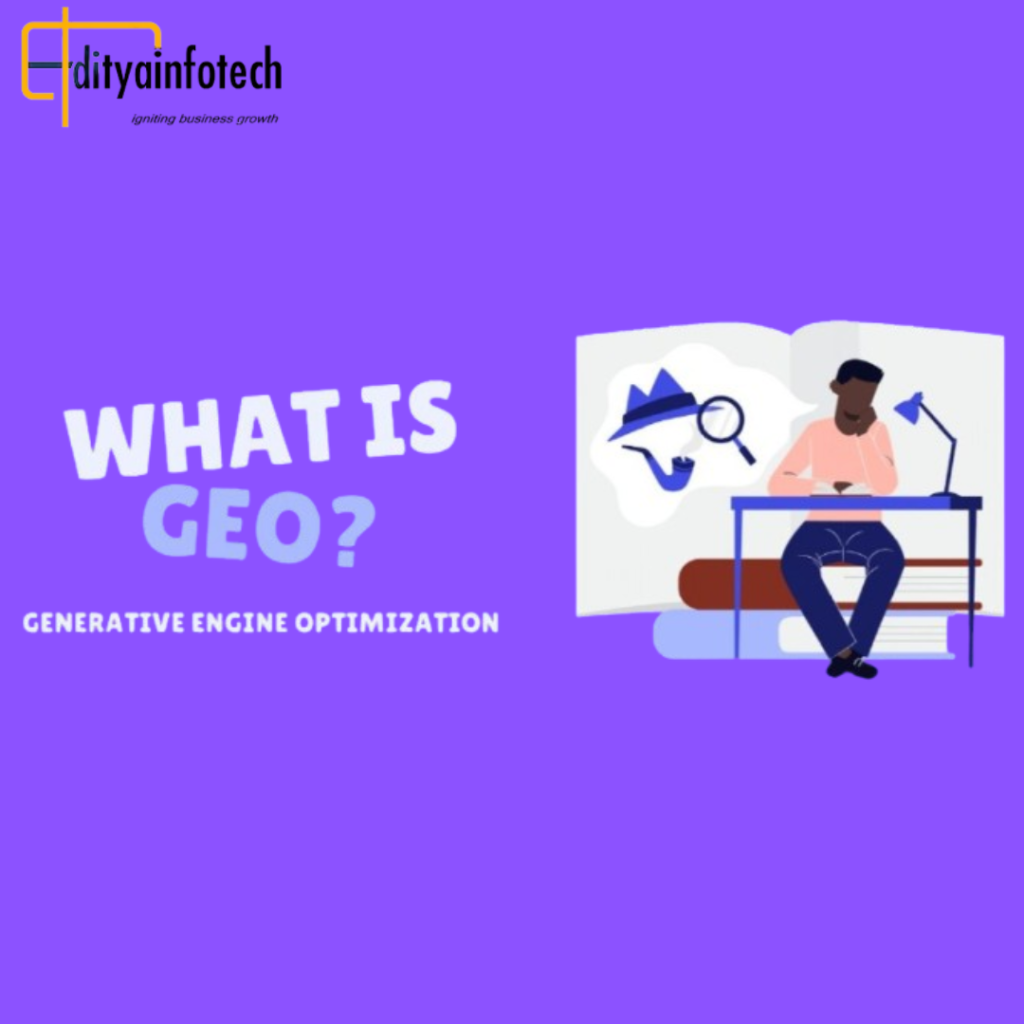

In a digital landscape rapidly evolving with the rise of AI and chat-based interfaces, Generative Engine Optimization (GEO) is emerging as the next frontier of content strategy. But what exactly is GEO, and why should marketers, content creators, and businesses care?
Understanding the Shift: From SEO to GEO
Traditional SEO vs. GEO:
Search Engine Optimization (SEO) has long been the backbone of digital visibility. It focuses on optimizing content for search engines like Google by using keywords, backlinks, meta descriptions, and structured content.
Generative Engine Optimization (GEO), on the other hand, is about optimizing content for AI-driven generative engines—like ChatGPT, Google Gemini, Claude, and other AI assistants that generate answers instead of just listing links.
These AI tools pull from vast datasets and language models to synthesize content, and increasingly, users are turning to them for information instead of using traditional search engines.
How generative engines work
Instead of just indexing pages and displaying lists of links, generative engines use large language models (LLMs) to understand the broader context and user intent behind a query. They then synthesize this information from multiple sources to provide a direct, comprehensive, and often conversational, response.
This shift has created a change in how content can be discovered, with some brands now competing for mentions and citations within an AI’s response rather than just a click on a traditional search result.
Why Does GEO Matter Now?
Changing User Behavior
With the rise of AI assistants, users are increasingly asking questions like:
“What are the best email marketing tools?”
“Summarize the latest SEO trends.”
“How can I create a content strategy?”
Instead of sorting through ten blue links, they’re getting a direct answer. That answer is generated from sources the AI deems credible, relevant, and well-structured. If your content isn’t part of that answer, you’re invisible to that audience.
Strategies for Generative Engine Optimization
To optimize for generative engines, content creators should focus on producing high-quality, comprehensive, and authoritative content that AI models can easily process and cite. Key strategies include:
Focus on user intent: Prioritize understanding what users are trying to accomplish rather than just targeting keywords. Create content that provides comprehensive, direct answers to common questions in your niche.
Adhere to E-E-A-T standards: Emphasize Experience, Expertise, Authoritativeness, and Trustworthiness. Cite reputable sources, link to industry experts, and ensure content is factually accurate to build credibility with AI algorithms.
Structure content for clarity: Use clear headings, bullet points, and tables to organize information. This scannable format helps AI parse and extract key information more easily.
Implement structured data: Use schema markup (e.g., FAQ, HowTo) to provide additional context to search engines and AI models, making your content more likely to appear in rich results and AI overviews.
Embrace multimedia: Supplement text with images, videos, and infographics. AI systems analyze these multimedia elements to understand the context and value of your content, which can enhance your visibility.
Cultivate brand authority beyond your website: AI models are trained on a wide range of web data. Distribute your content and participate in communities like Reddit and Quora to increase the chances of your brand being mentioned in AI-generated responses.
Future of GEO
As AI technology evolves, the strategies for GEO will also change. Future trends include:
Increased personalization: AI models will likely offer more personalized responses, requiring content creators to target diverse audience segments.
Multimodal search: Optimizing for various formats, such as voice and visual search, will be crucial as users interact with AI in different ways.
Advanced analytics: New tools will provide deeper insights into how AI engines prioritize, interpret, and display content, allowing for more data-driven GEO strategies.
Generative Engine Optimization isn’t just a buzzword it’s a strategic evolution. The way people find and interact with content is changing, and it’s time content strategies evolve too. By understanding and implementing GEO principles, you can ensure your content isn’t just searchable it’s sourced by the next generation of digital interfaces. Read More.